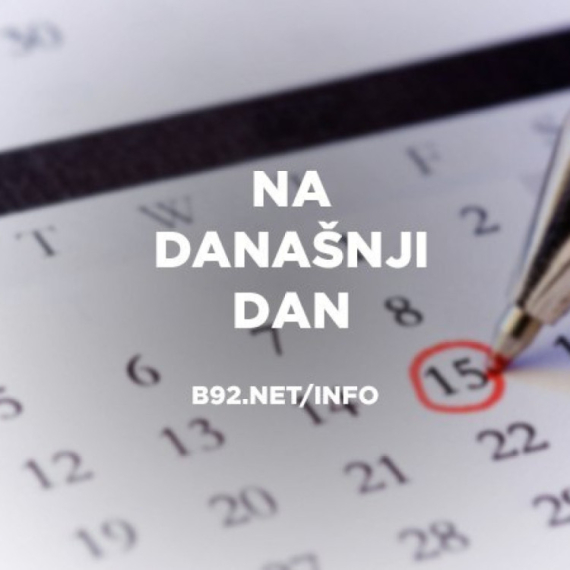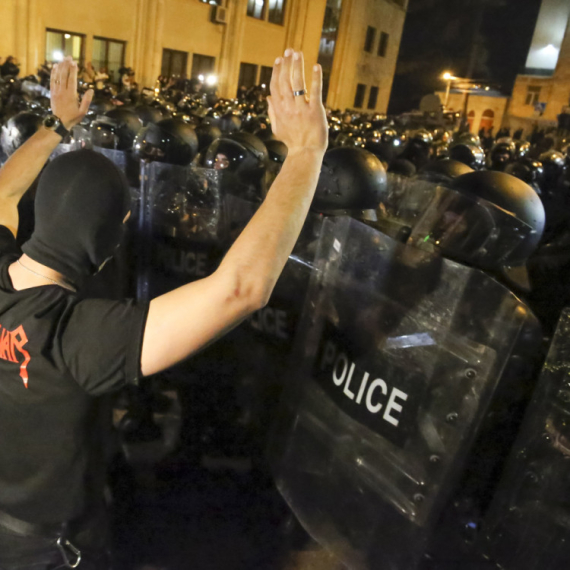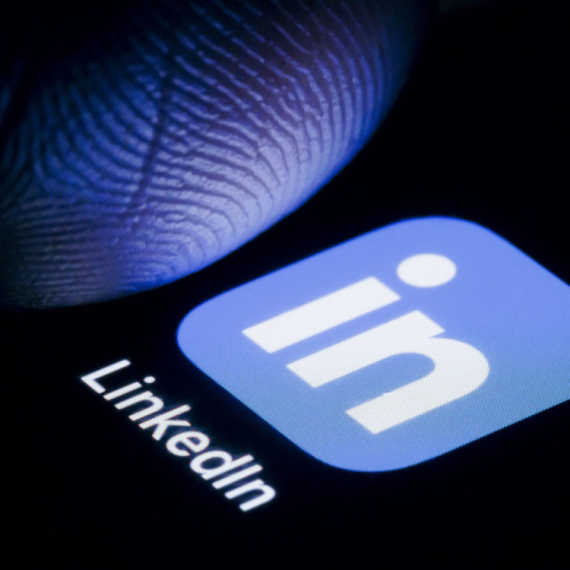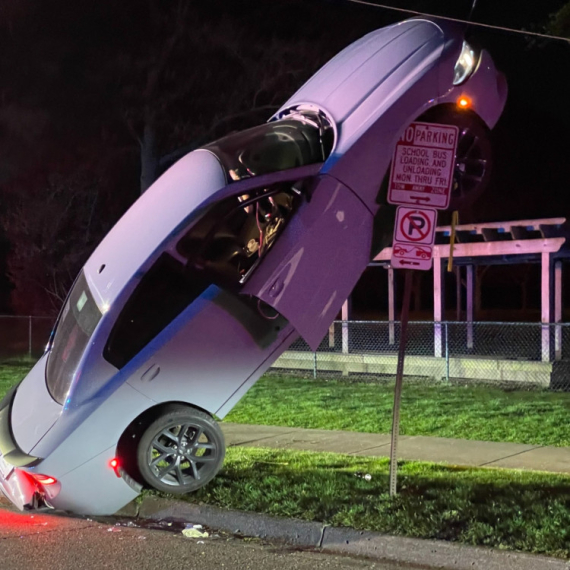Serbians don’t trust media
Almost three in four Serbians believe that the information presented by the media is controlled in some way.
Monday, 08.09.2008.
13:05

Almost three in four Serbians believe that the information presented by the media is controlled in some way. At the same time, about half of the population believes that political pressure is the main source of limited freedom of the media, according to results of a recent survey conducted by the Strategic Marketing agency. Serbians don’t trust media The negatives stance is a result of "the strong prejudice" that the media is bad, corrupted and serving something, "even if people do not have evidence of this", Strategic Marketing Director Srdjan Bogosavljevic said. He added that a majority of citizens choose to listen to and watch “their” media, and that there are media outlets that are followed not because they are trusted, but because they are large and present a source of information for many people. At the same time, journalist associations' officials commented in statements for Tanjug news agency that Serbians look for a confirmation of their political stances in the media that is close to their political option, which means that there are huge divisions in the society are reflected in the media. President of the Independent Journalists’ Association of Serbia (NUNS), Nadezda Gace, said that the general trust in the Serbian media by the people is low, but the trust in the media company that a citizen chooses to follow is generally high. According to the head of the Association of Journalists of Serbia (UNS), Nino Brajovic, the average Serbian citizen does not have the money to buy several different newspapers every day and that is why they look for a paper that confirms their worldview "and will not ruin that idyllic situation". The key media is the television, according to Bogosavljevic, because all others require money and effort, while getting information from the television is the easiest, shortest and fastest method. He also said that the television offers various programs from different media groups, which enables viewers to find the outlet that suits them the most, provides information in the easiest way, which leads to viewers deciding whom to trust the most. Bogosavljevic added that every media group, more or less, is the subject of suspicion that it engages in disseminating disinformation, but said that the actual percentages are "fairly small". “When you put together the results of various surveys, it is very common that those who do not like a certain media group for some unknown reasons believe that media is guilty of disinformation, so they do not watch or read from that media,” he said. He continued that a very small number of people believe there are completely independent media, while an equally small percentage is certain the media are depend on something or someone. He added that "the definition of independent is not very clear to people" and that when asked, the answer is usually that lack of independence has to do with "more with some kind of corruption", than politics. Bogosavljevic said that the public believes that tycoons also have influence in the media sector, and that people do not have a clear idea about how this influence is exercised. Pressure on electronic media, Bogosavljevic concluded, exists because their large audiences mean that such media are particularly scrutinized.
Serbians don’t trust media
The negatives stance is a result of "the strong prejudice" that the media is bad, corrupted and serving something, "even if people do not have evidence of this", Strategic Marketing Director Srđan Bogosavljević said.He added that a majority of citizens choose to listen to and watch “their” media, and that there are media outlets that are followed not because they are trusted, but because they are large and present a source of information for many people.
At the same time, journalist associations' officials commented in statements for Tanjug news agency that Serbians look for a confirmation of their political stances in the media that is close to their political option, which means that there are huge divisions in the society are reflected in the media.
President of the Independent Journalists’ Association of Serbia (NUNS), Nadežda Gaće, said that the general trust in the Serbian media by the people is low, but the trust in the media company that a citizen chooses to follow is generally high.
According to the head of the Association of Journalists of Serbia (UNS), Nino Brajović, the average Serbian citizen does not have the money to buy several different newspapers every day and that is why they look for a paper that confirms their worldview "and will not ruin that idyllic situation".
The key media is the television, according to Bogosavljević, because all others require money and effort, while getting information from the television is the easiest, shortest and fastest method.
He also said that the television offers various programs from different media groups, which enables viewers to find the outlet that suits them the most, provides information in the easiest way, which leads to viewers deciding whom to trust the most.
Bogosavljević added that every media group, more or less, is the subject of suspicion that it engages in disseminating disinformation, but said that the actual percentages are "fairly small".
“When you put together the results of various surveys, it is very common that those who do not like a certain media group for some unknown reasons believe that media is guilty of disinformation, so they do not watch or read from that media,” he said.
He continued that a very small number of people believe there are completely independent media, while an equally small percentage is certain the media are depend on something or someone.
He added that "the definition of independent is not very clear to people" and that when asked, the answer is usually that lack of independence has to do with "more with some kind of corruption", than politics.
Bogosavljević said that the public believes that tycoons also have influence in the media sector, and that people do not have a clear idea about how this influence is exercised.
Pressure on electronic media, Bogosavljević concluded, exists because their large audiences mean that such media are particularly scrutinized.

























































Komentari 2
Pogledaj komentare